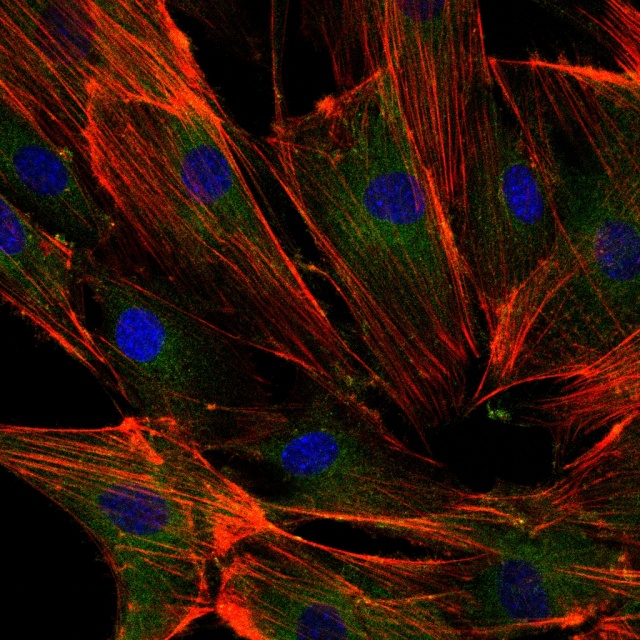Hungarian researchers discover key protein in stem cell differentiation
The discovery could reveal new possibilities in the treatment of osteoporosis and diabetes. The biological stem cell functions of Tks4 were identified by László Buday’s research group in the Institute of Enzymology of the MTA Research Centre for Natural Sciences. The project was led by Virág Vas.
12 December, 2016
Mesenchymal stem cells are intensively researched in regenerative medicine, with promising results concerning the replacement of human cells or tissues. Although the transformation of these stem cells into well-defined tissues (e.g. bone, muscle or fat tissues) is researched in several laboratories all over the world, accompanied by intensive clinical tests, the exact molecular mechanism of the process is still not known.
 Mesenchymal stem cells source: MTA TTK Institute of Enzymology
Mesenchymal stem cells source: MTA TTK Institute of EnzymologyFrank-ter Haar syndrome is a rare genetic disease. Children suffering from this disease are typically short with wide forehead bones, their eyes are wide apart, they have short bones, low amount of body fat and have development disorders in the heart and the nervous system, which finally lead to the death of the child. The gene responsible for the disease (SH3PXD2B) and the protein encoded by the gene (Tks4) were both identified in 2010.
A full account on this research was published in Scientific Reports.
